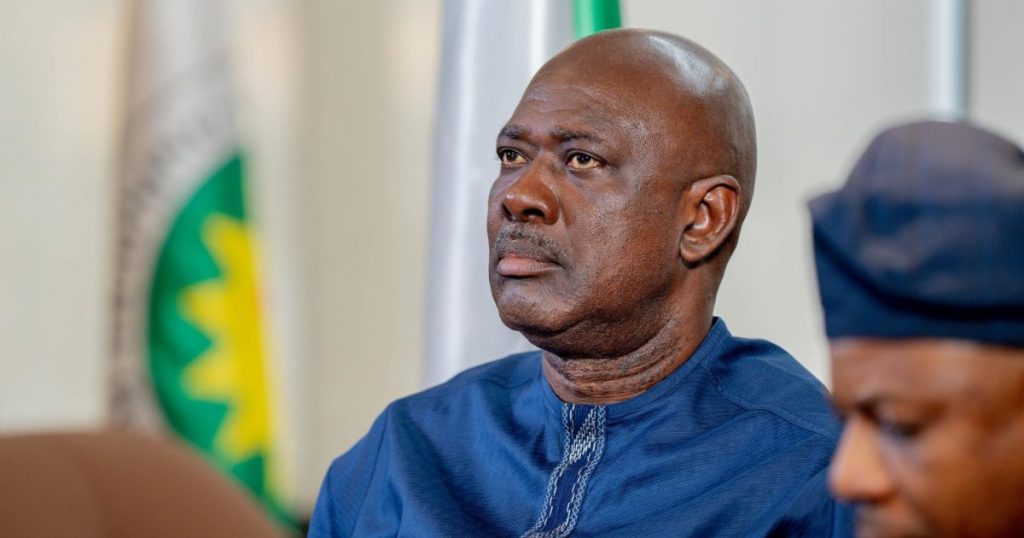Strengthening Nigeria’s Energy Ecosystem: A Focus on Resilience, Local Capacity, and Investment
Nigeria, a nation with significant energy resources, is actively working to bolster its energy sector by focusing on building resilience, fostering local capacity, and attracting investment. Recognizing the global uncertainties that can disrupt cross-border energy operations, the Federal Government is prioritizing the development of a robust local energy supply chain. This proactive approach is designed to mitigate the impact of trade wars, sanctions, currency fluctuations, regional conflicts, and security concerns, all of which can disrupt the seamless flow of goods and services across borders. The government’s strategy involves not only strengthening international partnerships but also significantly enhancing local capabilities to withstand future global disruptions. This dual focus is crucial for ensuring a stable and secure energy future for Nigeria.
The government’s overarching objective is to fortify the entire energy ecosystem, creating ample opportunities for local businesses and professionals. A key component of this strategy is attracting investment to the energy sector. The administration of President Tinubu is implementing investment-friendly policies aimed at making Nigeria a premier destination for energy investors. These policies include the implementation of the Petroleum Industry Act, which has liberalized the sector, enhanced wealth mobility, and boosted investor confidence. Furthermore, executive orders and other strategic incentives are being utilized to make Nigeria even more attractive to both domestic and international investors. This proactive approach toward investment attraction is already yielding positive results, evidenced by the increasing engagement with foreign governments and private sector leaders exploring mutually beneficial collaborations.
Human Capital Development and Technical Expertise: Investing in Nigeria’s Energy Future
Recognizing that a robust energy sector requires a skilled workforce, the government is investing heavily in human capital development and technical expertise. A significant step in this direction is the establishment of a new postgraduate energy university in Kaduna. This institution, forged through strategic partnerships with three leading British universities, will nurture homegrown expertise in global best practices. This initiative complements the ongoing contributions of international professionals who have historically played a crucial role in Nigeria’s energy development. By developing local expertise and integrating global best practices, the government aims to create a sustainable and highly skilled workforce capable of driving innovation and ensuring the long-term success of the energy sector.
Collaboration and Innovation: Key Drivers of a Sustainable Energy Future
The government recognizes the critical role of collaboration and innovation in achieving a sustainable energy future. It is actively encouraging stakeholders, including industry experts, policymakers, investors, and scholars, to actively engage, share insights, and collaboratively develop solutions. Leveraging technology for innovation and profitability, strengthening supply chains, developing local and international human capital, and fostering a stable, environmentally friendly, and investment-friendly atmosphere are all key priorities. The government’s commitment to these principles is evident in its ongoing efforts to create a conducive environment for collaboration and innovation within the energy sector.
Nigeria’s Vision: A Resilient, Sustainable, and Profitable Energy Sector
Nigeria’s vision for its energy sector is one of resilience, sustainability, and profitability. By focusing on building local capacity, attracting investment, and fostering innovation, the government aims to ensure that the country’s energy resources are developed responsibly and contribute to long-term economic growth. The government is actively working to create an environment that encourages collaboration, fosters innovation, and attracts both domestic and international investment. This comprehensive approach is designed to ensure that Nigeria’s energy sector is not only resilient to global challenges but also contributes significantly to the nation’s prosperity.
A Call to Action: Partnering for a Sustainable Energy Future
The Nigerian government is extending a call to action to all stakeholders in the energy sector, urging them to collaborate in building a sustainable and prosperous energy future. This call emphasizes the importance of shared responsibility and the need for collective action to address the challenges and opportunities within the energy sector. It underscores the government’s commitment to fostering a welcoming and productive environment for all those involved in the development of Nigeria’s energy resources. The ultimate goal is to create a vibrant and sustainable energy sector that benefits all Nigerians and contributes to the nation’s continued development.














